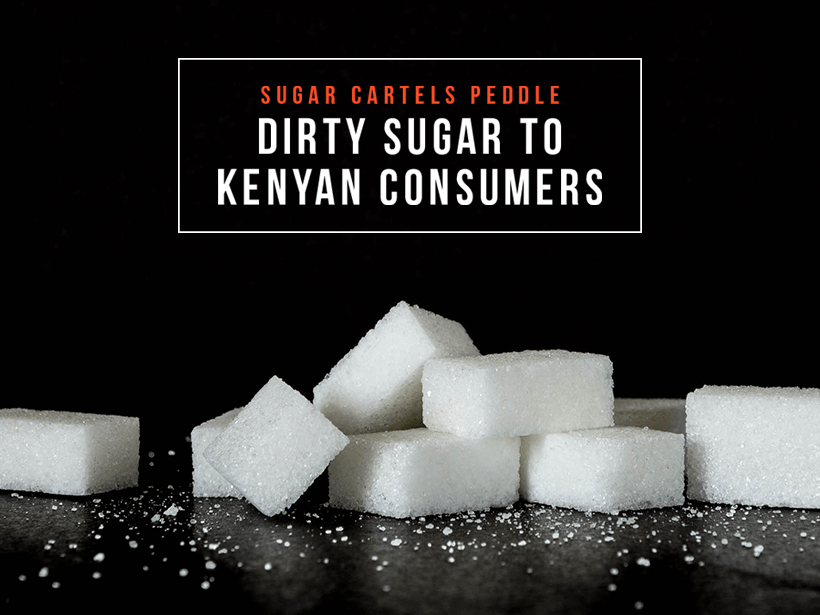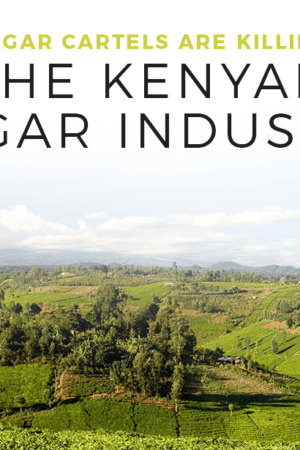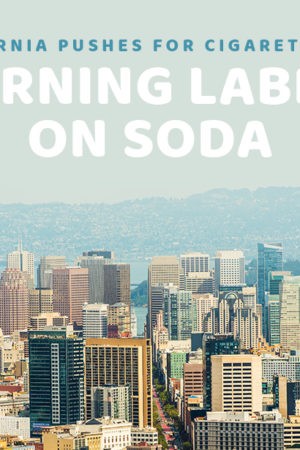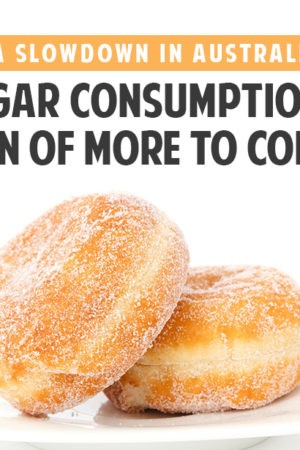Rarely do we, as consumers, stop to think about where our food comes from.
Yet, this summer, a story emerged from Kenya that should cause consumers to view their sugar with a little more scrutiny. This story suggests that the sugar supply chain might be corrupted on multiple levels by bad actors who are looking to offload and sell “dirty” sugar at a high profit.
What happened?
Many answers are still unclear. Several Kenyan media outlets have covered this story, demanding that the Kenyan government investigate this issue for the safety of consumers. Here are some of the key facts that they’re reporting.1
Kenyan government officials blew the sugar import market open.
In May 2017, the Kenya Gazette–the publication which announces changes in regulation–revealed that any person could import sugar. A later regulation change extended the window where sugar could be imported duty-free. The result: any country can offload its sugar to any person in Kenya with enough wealth to purchase it. Duty-free, for the foreseeable future.
Sounds like a sweet deal, right? This has led some reporters to the conclusion that the regulations were written by powerful operators within the sugar cartel, then handed to Kenyan officials who published it as regulatory law. Foreign exporters – most notably Brazil – began shipping sugar in massive quantities to Kenya, where producers quickly scooped it up and stored it away for sale to consumers. The amounts are so large that reporters believe officials have little knowledge where the sugar came from or where it went.
As a result, Kenya likely imported a significant amount of sugar that is unsafe for consumption.
When immediate profit is possible and industry oversight is low, the potential for corruption flourishes. In the town Migori, officials found a cache of massive quantities of sugar that was unsafe for human consumption. Companies who imported this sugar claim that they were planning to process it before selling it to consumers. However, Kenyan refineries do not have the capacity to refine sugar at the rate it is being imported.
The conclusion is easy to draw: most importers had no plans to process the sugar. They planned to make maximum profit by selling the unsafe, unprocessed sugar directly to consumers. Kenyan officials have no answers as to how much unsafe sugar has already been distributed, but the recent seizure in Migori makes it clear–the problem is real. Unsafe sugar has likely entered the supply line.
To sum up the problem…
If Kenyan reporters are reading the issue correctly, here’s what happened:
- Brazilian sugar exporters worked together with Kenyan officials to craft advantageous legislation.
- Kenyan importers bought massive amounts of sugar, much of it unprocessed.
- Both foreign exporters and domestic importers worked in tandem to offload unsafe sugar.
- Kenyan consumers are purchasing untrustworthy sugar.
Although many questions remain, the situation does not look good, particularly for Kenyan consumers.
NUTRITIONAL DISCLAIMER
The content on this website should not be taken as medical advice and you should ALWAYS consult with your doctor before starting any diet or exercise program. We provide nutritional data for our recipes as a courtesy to our readers. We use Total Keto Diet app software to calculate the nutrition and we remove fiber and sugar alcohols, like erythritol, from the total carbohydrate count to get to the net carb count, as they do not affect your blood glucose levels. You should independently calculate nutritional information on your own and not rely on our data. The website or content herein is not intended to cure, prevent, diagnose or treat any disease. This website shall not be liable for adverse reactions or any other outcome resulting from the use of recipes or recommendations on the Website or actions you take as a result. Any action you take is strictly at your own risk.
- Keto Might Give Navy SEALs an Advantage - July 18, 2019
- The Primary Roles of Fat in Our Diets - July 8, 2019
- Low Carb Tech is Transforming Diabetes Treatment - June 21, 2019































